Loading...
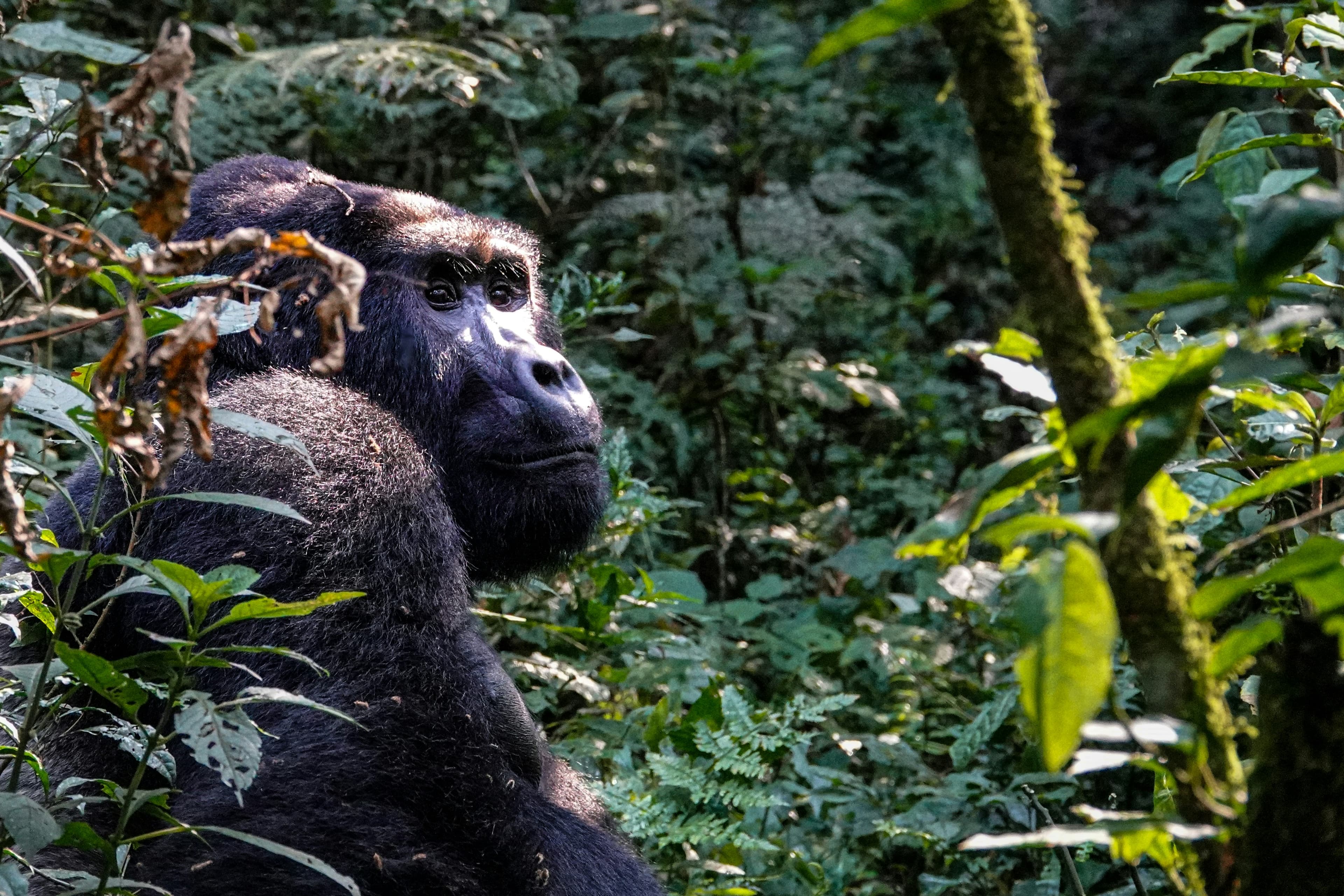
Bwindi Gorilla Trekking Experience - 3 Days
Embark on the wildlife encounter of a lifetime - tracking endangered mountain gorillas in their natural habitat within Uganda's ancient Bwindi Impenetrable Forest. This 3-day intensive experience incl...
Photo Gallery

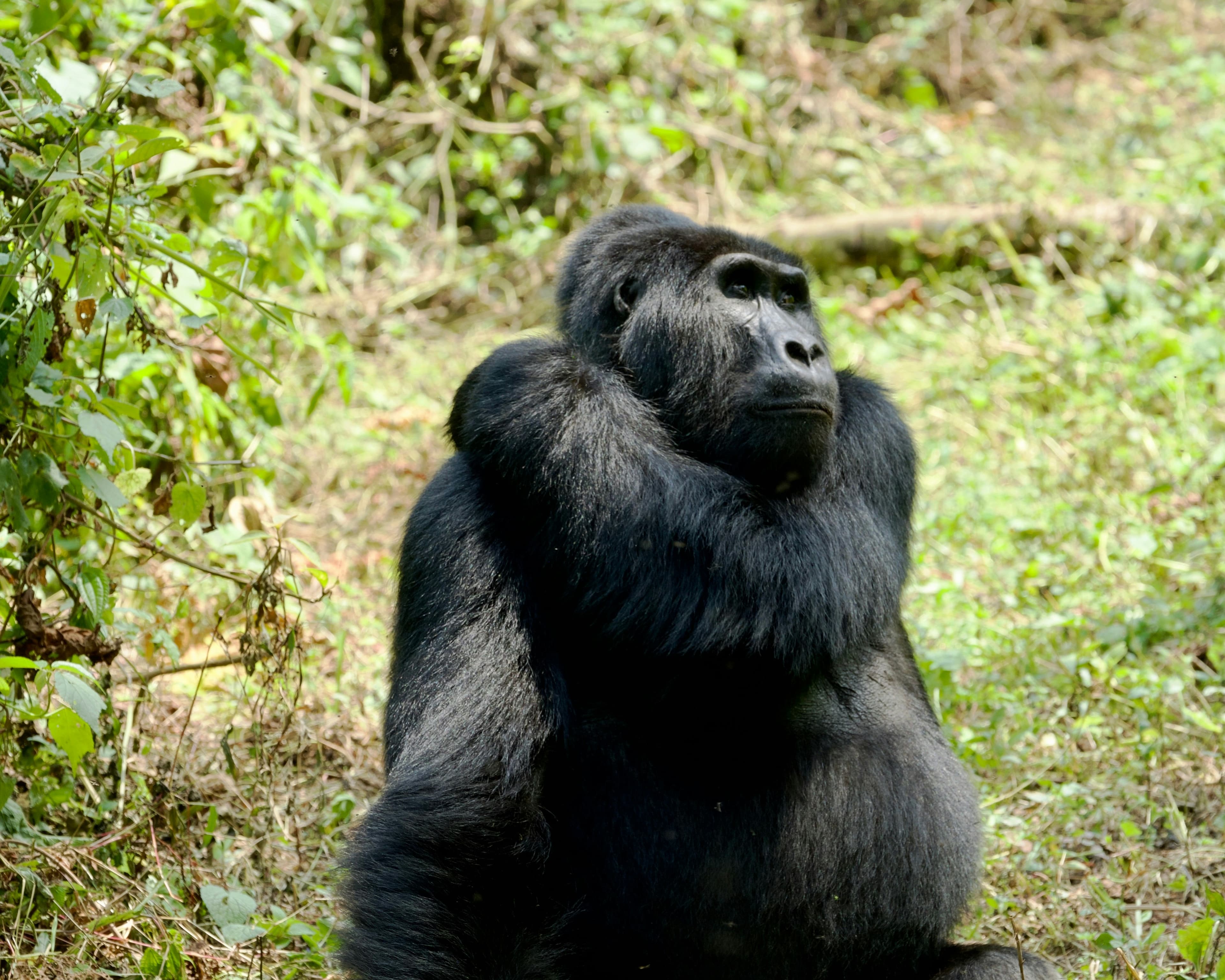
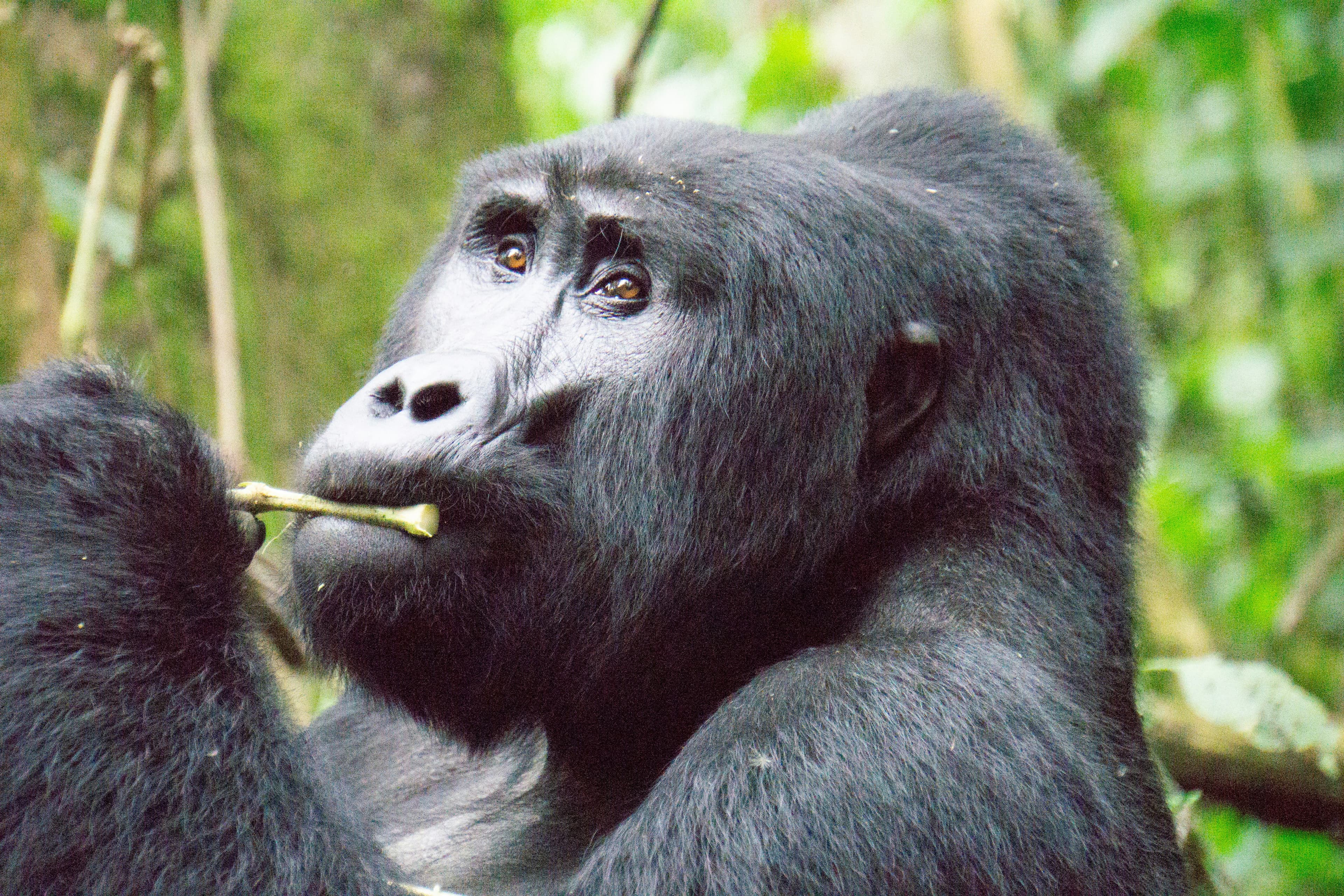
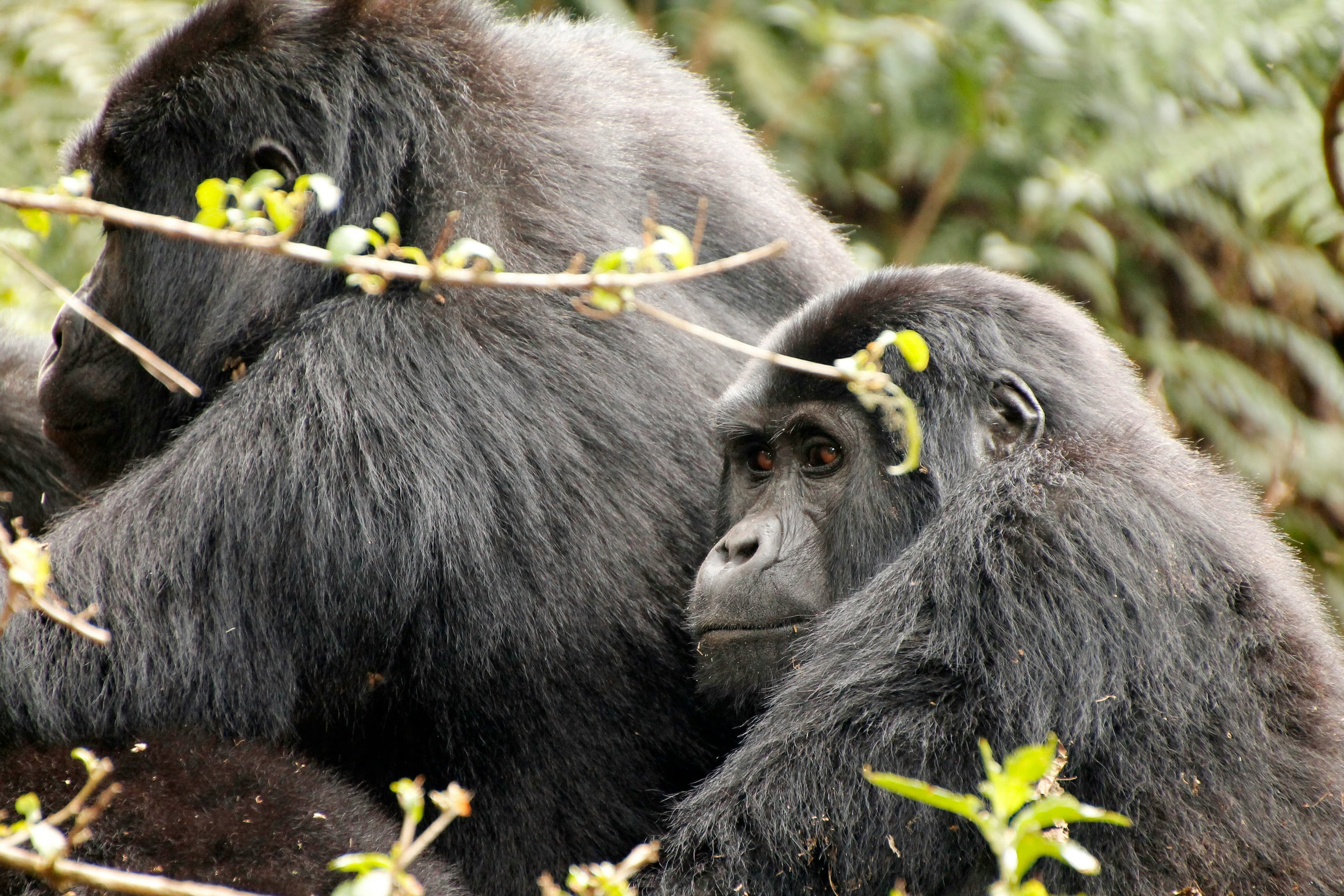
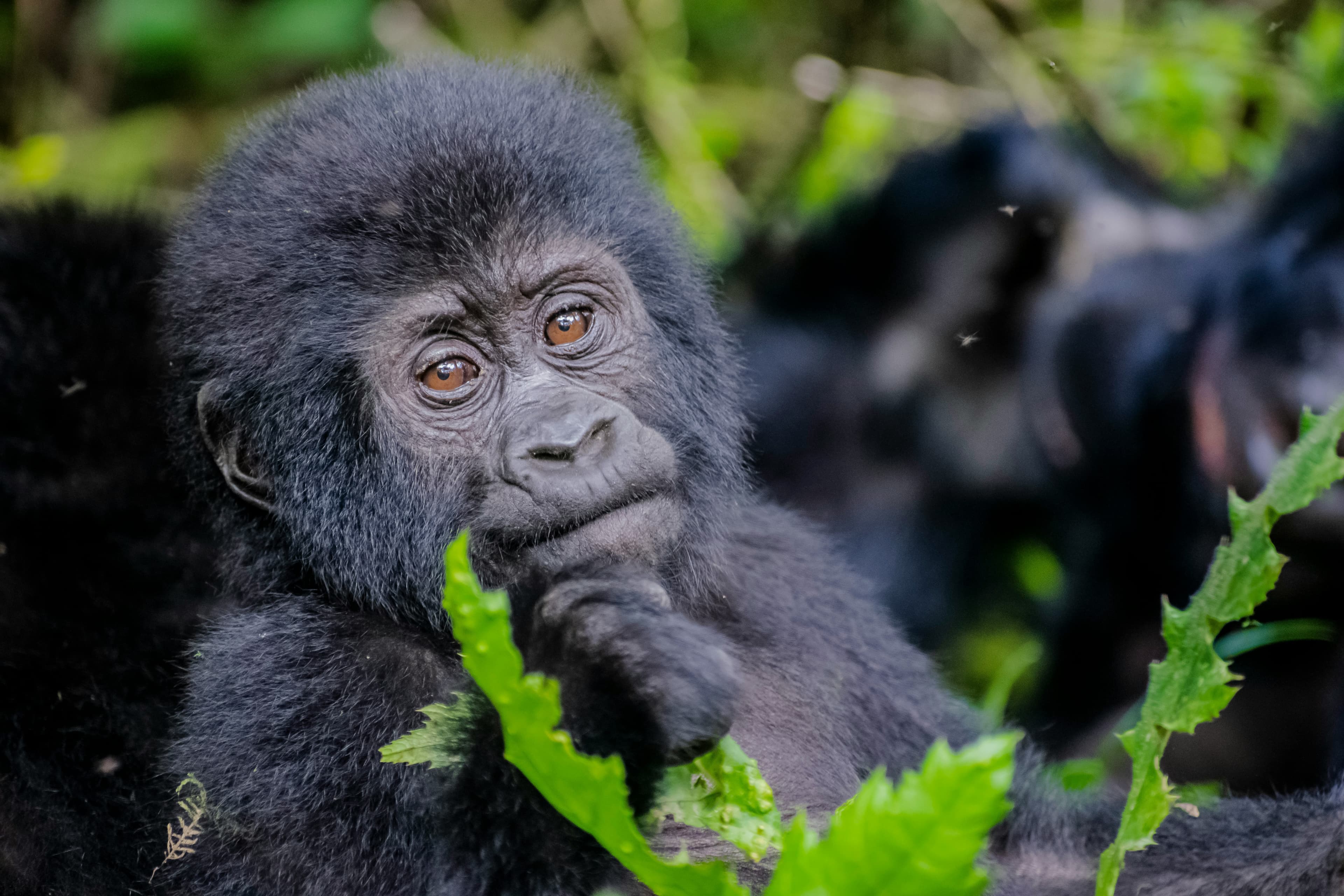
Tour Overview
Embark on the wildlife encounter of a lifetime - tracking endangered mountain gorillas in their natural habitat within Uganda's ancient Bwindi Impenetrable Forest. This 3-day intensive experience includes one gorilla trekking permit ($700 value), expert trackers, and accommodation near the forest. Trek through dense montane rainforest to spend a magical hour observing a habituated gorilla family - watching silverbacks, mothers with infants, and juveniles playing. With only ~1,100 mountain gorillas remaining globally, this is a rare and profoundly moving experience.
3-day Uganda gorilla trekking in Bwindi Impenetrable Forest. Permit included ($700 value). Spend 1 hour with endangered mountain gorillas. Life-changing wildlife encounter. Expert guides. Book your dream gorilla safari now!
Tour Highlights
Day-by-Day Itinerary
1Arrival & Transfer to Bwindi - Journey to the Gorillas
Your gorilla adventure begins with pickup from Entebbe/Kampala (very early, 5:00 AM, for 8-9 hour drive) OR from Kigali, Rwanda (recommended - only 4-5 hours to Bwindi). Most travelers choose the Kigali option as it's significantly shorter and Kigali airport is closer to Bwindi than Entebbe. The scenic drive passes through terraced hillsides, tea plantations, and rural villages showcasing East African life. Cross the Uganda-Rwanda border (Cyanika or Katuna) with visa on arrival. Stop for lunch at a local restaurant en route. As you approach Bwindi, the landscape transforms into misty mountains covered in dense montane forest. Arrive at your lodge (Buhoma Community Rest Camp, Engagi Lodge, or similar) in late afternoon, perched on the edge of Bwindi Impenetrable National Park. Check-in and attend the mandatory briefing session (5:00 PM) about tomorrow's trek, reviewing rules: maintain 7-meter distance, no flash photography, maximum 1 hour with gorillas, no visiting if sick. Dinner at lodge featuring hearty Ugandan cuisine. Rest early - tomorrow's trek begins at 8:00 AM. Overnight surrounded by forest sounds.
Lunch, DinnerBuhoma Community Rest Camp / Engagi Lodge or similar
Arrival & Transfer to Bwindi - Journey to the Gorillas
Your gorilla adventure begins with pickup from Entebbe/Kampala (very early, 5:00 AM, for 8-9 hour drive) OR from Kigali, Rwanda (recommended - only 4-5 hours to Bwindi). Most travelers choose the Kigali option as it's significantly shorter and Kigali airport is closer to Bwindi than Entebbe. The scenic drive passes through terraced hillsides, tea plantations, and rural villages showcasing East African life. Cross the Uganda-Rwanda border (Cyanika or Katuna) with visa on arrival. Stop for lunch at a local restaurant en route. As you approach Bwindi, the landscape transforms into misty mountains covered in dense montane forest. Arrive at your lodge (Buhoma Community Rest Camp, Engagi Lodge, or similar) in late afternoon, perched on the edge of Bwindi Impenetrable National Park. Check-in and attend the mandatory briefing session (5:00 PM) about tomorrow's trek, reviewing rules: maintain 7-meter distance, no flash photography, maximum 1 hour with gorillas, no visiting if sick. Dinner at lodge featuring hearty Ugandan cuisine. Rest early - tomorrow's trek begins at 8:00 AM. Overnight surrounded by forest sounds.
2Gorilla Trekking Day - The Ultimate Wildlife Encounter
Wake early (6:00 AM) for breakfast and prepare for the day: wear long pants/sleeves (protection from stinging nettles), waterproof jacket, sturdy hiking boots, and carry rain gear (Bwindi receives rain year-round). Bring at least 2 liters of water, snacks, camera (no flash), and walking stick (provided). At 8:00 AM, report to the park headquarters for group allocation - maximum 8 trekkers per gorilla family. Briefing covers protocols: no eating/drinking near gorillas, turn away if you need to cough/sneeze, crouch low to appear non-threatening, stay calm if gorillas approach. Hiring a porter ($15) is highly recommended - they carry your backpack, assist on steep sections, and support local employment. Your expert trackers know the gorillas' approximate location from yesterday's nesting site and communicate via radio with advance scouts tracking movements since dawn. The trek duration is unpredictable (2-8 hours depending on gorilla location) through steep, muddy, dense vegetation. Bwindi's terrain is challenging - altitude 1,160-2,607m with thick undergrowth, but adrenaline keeps you going. When trackers locate the gorilla family, you'll be allowed exactly ONE HOUR with them. This is the moment you've traveled for: watch the massive silverback (adult male, up to 200kg) peacefully feeding, mothers nursing infants with tender care, juveniles playing and tumbling, youngsters curiously approaching within meters. Gorillas are habituated to humans and generally ignore visitors, going about their daily activities - eating, resting, grooming, vocalizing. The intimacy and intelligence in their eyes is unforgettable. Take photos (no flash) but also put the camera down to simply observe. After your hour, return to trailhead (1-3 hours) where a certificate of achievement awaits. Return to lodge exhausted but exhilarated. Optional afternoon Batwa cultural experience ($80) - meet the indigenous pygmy people displaced from the forest when it became a park, learn about their traditional forest life, medicine, hunting techniques, and enjoy song/dance performances. Their story provides important historical context for conservation. Dinner and overnight at lodge.
Breakfast, Lunch (packed), DinnerBuhoma Community Rest Camp / Engagi Lodge or similar
Gorilla Trekking Day - The Ultimate Wildlife Encounter
Wake early (6:00 AM) for breakfast and prepare for the day: wear long pants/sleeves (protection from stinging nettles), waterproof jacket, sturdy hiking boots, and carry rain gear (Bwindi receives rain year-round). Bring at least 2 liters of water, snacks, camera (no flash), and walking stick (provided). At 8:00 AM, report to the park headquarters for group allocation - maximum 8 trekkers per gorilla family. Briefing covers protocols: no eating/drinking near gorillas, turn away if you need to cough/sneeze, crouch low to appear non-threatening, stay calm if gorillas approach. Hiring a porter ($15) is highly recommended - they carry your backpack, assist on steep sections, and support local employment. Your expert trackers know the gorillas' approximate location from yesterday's nesting site and communicate via radio with advance scouts tracking movements since dawn. The trek duration is unpredictable (2-8 hours depending on gorilla location) through steep, muddy, dense vegetation. Bwindi's terrain is challenging - altitude 1,160-2,607m with thick undergrowth, but adrenaline keeps you going. When trackers locate the gorilla family, you'll be allowed exactly ONE HOUR with them. This is the moment you've traveled for: watch the massive silverback (adult male, up to 200kg) peacefully feeding, mothers nursing infants with tender care, juveniles playing and tumbling, youngsters curiously approaching within meters. Gorillas are habituated to humans and generally ignore visitors, going about their daily activities - eating, resting, grooming, vocalizing. The intimacy and intelligence in their eyes is unforgettable. Take photos (no flash) but also put the camera down to simply observe. After your hour, return to trailhead (1-3 hours) where a certificate of achievement awaits. Return to lodge exhausted but exhilarated. Optional afternoon Batwa cultural experience ($80) - meet the indigenous pygmy people displaced from the forest when it became a park, learn about their traditional forest life, medicine, hunting techniques, and enjoy song/dance performances. Their story provides important historical context for conservation. Dinner and overnight at lodge.
3Bwindi to Kigali/Entebbe - Departure with Memories
Enjoy a leisurely breakfast while processing yesterday's incredible gorilla encounter - many travelers describe it as the most moving wildlife experience of their lives. Check out around 9:00 AM and begin the return journey to Kigali (4-5 hours) or Entebbe (8-9 hours). The drive provides time for reflection and photo processing. Kigali-bound travelers arrive by early afternoon (1:00-2:00 PM) with time for lunch at Heaven Restaurant in Kigali and optional quick Kigali city tour including the sobering but important Kigali Genocide Memorial (if afternoon flights). Entebbe-bound travelers arrive by early evening (6:00 PM). Optional add-on: Extend your Uganda experience with visits to Queen Elizabeth National Park (tree-climbing lions, boat safari on Kazinga Channel) or Lake Bunyonyi (stunning terraced hillsides, relaxation). Many travelers combine gorilla trekking with Rwanda's Volcanoes National Park to trek a second gorilla family or golden monkeys, or continue to Bwindi's southern sector for lowland gorilla habituation experience (full day with gorillas, $1,500). Your 3-day intensive gorilla experience concludes, but the memory of meeting our closest relatives in their forest home will last forever. The permit fees directly fund conservation efforts protecting these magnificent critically endangered creatures.
Breakfast, LunchNone (end of tour)
Bwindi to Kigali/Entebbe - Departure with Memories
Enjoy a leisurely breakfast while processing yesterday's incredible gorilla encounter - many travelers describe it as the most moving wildlife experience of their lives. Check out around 9:00 AM and begin the return journey to Kigali (4-5 hours) or Entebbe (8-9 hours). The drive provides time for reflection and photo processing. Kigali-bound travelers arrive by early afternoon (1:00-2:00 PM) with time for lunch at Heaven Restaurant in Kigali and optional quick Kigali city tour including the sobering but important Kigali Genocide Memorial (if afternoon flights). Entebbe-bound travelers arrive by early evening (6:00 PM). Optional add-on: Extend your Uganda experience with visits to Queen Elizabeth National Park (tree-climbing lions, boat safari on Kazinga Channel) or Lake Bunyonyi (stunning terraced hillsides, relaxation). Many travelers combine gorilla trekking with Rwanda's Volcanoes National Park to trek a second gorilla family or golden monkeys, or continue to Bwindi's southern sector for lowland gorilla habituation experience (full day with gorillas, $1,500). Your 3-day intensive gorilla experience concludes, but the memory of meeting our closest relatives in their forest home will last forever. The permit fees directly fund conservation efforts protecting these magnificent critically endangered creatures.
What's Included & Excluded
Included in Price
- One gorilla trekking permit per person ($700 USD)
- All ground transportation in 4×4 vehicle
- Professional English-speaking guide
- 2 nights mid-range lodge accommodation
- All meals (full board)
- Park ranger fees
- Porter hire (optional but recommended, $15)
- Bottled water during trek
- Government taxes
- Airport/hotel pickup in Kigali or Entebbe
Not Included
- International flights
- Visa: Uganda ($50) or Rwanda ($50) depending on entry point
- Travel insurance (mandatory)
- Alcoholic beverages
- Tips for guides, porters, and lodge staff ($30-40 total recommended)
- Optional Batwa cultural experience ($80)
- Personal expenses
- Gorilla habituation experience (different permit, $1,500)
- Additional activities
- Medical evacuation insurance (recommended)
Tour Requirements
- Valid passport with 6+ months validity
- Uganda visa ($50) OR Rwanda visa ($50) depending on entry point
- Yellow fever vaccination certificate (mandatory)
- Minimum age 15 years (strictly enforced - ID checked)
- Excellent health (no colds, coughs, or illness - permit forfeited if sick)
- Moderate-to-good fitness level for challenging hiking
- Travel insurance covering medical evacuation
- Long pants, long sleeves, waterproof hiking boots
- No flash photography allowed with gorillas
Frequently Asked Questions
Commonly asked questions about this tour
Is gorilla trekking physically difficult? What fitness level is needed?
Gorilla trekking ranges from moderate to strenuous depending on the location of your assigned gorilla family. Expect to hike 2-8 hours round trip through steep, muddy, slippery terrain at altitude (1,160-2,607m) in humid conditions. The forest is dense with thick undergrowth requiring scrambling over roots, ducking under vines, and sometimes cutting through vegetation. You need reasonable fitness - ability to walk uphill for several hours carrying a day pack. However, guides adjust pace to the group, porters assist, and the experience is adapted to participants' abilities. Even those with moderate fitness complete it successfully. The key is mental determination - knowing an incredible reward awaits.
What are the chances of seeing gorillas? Is it guaranteed?
Gorilla sightings are virtually 100% guaranteed. Park authorities have radio communication between trackers who follow gorilla families from dawn. Before your group starts trekking, scouts confirm the gorillas' approximate location. Gorilla families move slowly (only 1-2km per day while feeding), nest overnight, and are habituated to human presence. In 99%+ of treks, gorillas are located successfully. The uncertainty is duration - your assigned family might be 30 minutes away or 4 hours away. Shorter treks are assigned to older/less fit visitors when possible. The system is well-organized. Refunds are not provided if gorillas aren't found (extremely rare), but permits can sometimes be rescheduled.
Why is the permit so expensive at $700?
Gorilla permits cost $700 in Uganda ($1,500 in Rwanda) because: 1) They fund critical conservation efforts protecting critically endangered species (only ~1,100 remain), 2) Revenues support anti-poaching patrols, veterinary care, and habitat protection, 3) Fees benefit local communities through employment (guides, porters, lodges) creating incentives to protect rather than harm gorillas, 4) Limited permits (maximum 8 people per family per day) minimize disturbance ensuring long-term survival, 5) The experience is priceless - an hour with mountain gorillas in the wild is truly once-in-a-lifetime. Permits sell out months in advance, indicating demand exceeds supply at current prices. Your fee directly protects these magnificent creatures.
Can I do gorilla trekking in Rwanda instead? What's the difference?
Yes, you can trek mountain gorillas in Rwanda's Volcanoes National Park (permits $1,500) or DR Congo's Virunga National Park (permits $400 but security concerns). Differences: Uganda (Bwindi) is more affordable ($700), forest is denser/more challenging terrain, gorillas are forest-adapted. Rwanda (Volcanoes) is more expensive ($1,500), bamboo forest at higher altitude, terrain somewhat easier, permits include porter, park is closer to Kigali (2 hours vs Uganda 4-5 hours from Kigali). Many travelers do both countries to see different habitats. Both have 99%+ success rates. Uganda offers better value while Rwanda provides more luxury infrastructure.
What's the best time of year for gorilla trekking?
Gorilla trekking operates year-round with high success rates always, but timing affects trekking difficulty. DRY SEASONS (best): June-September and December-February offer drier trails (less mud), easier hiking, clearer views, but higher demand and heat. WET SEASONS: March-May and October-November bring heavy rain, muddy slippery trails, leeches, difficult hiking, but also advantages - fewer tourists, discounted accommodation, lush vegetation, baby gorillas often born in this period. Bwindi is a rainforest receiving rain year-round, so waterproof gear is essential regardless of season. Book permits 3-6 months ahead for dry season, 1-2 months for wet season.
What should I wear and bring for gorilla trekking?
WEAR: Long pants (tucked into socks to prevent ant bites), long-sleeved shirt (neutral colors - no bright colors/white), sturdy waterproof hiking boots with ankle support and good grip, waterproof jacket/rain gear, gardening gloves (protection from stinging nettles), hat. BRING: 2+ liters water, energy snacks, camera (no flash - high ISO needed in forest), extra batteries (cold drains them), insect repellent, sunscreen, personal first aid, plastic bags (protect electronics from rain). OPTIONAL: Gaiters (keep pants dry/mud-free), walking stick (provided free at park). Hire a porter ($15) to carry your bag - excellent investment helping locals and freeing you to focus on trekking.
Are gorillas dangerous? How close will I get?
Mountain gorillas are generally peaceful herbivores, and habituated families are accustomed to human observers maintaining calm behavior. Regulations require maintaining 7-meter (23 feet) distance, but gorillas don't know this rule and may approach you curiously, especially juveniles. If a gorilla approaches, stay calm, avoid eye contact (seen as threat), crouch low, move slowly aside if needed. Never touch gorillas (illegal and disease transmission risk). Silverbacks may mock charge if they feel threatened - stand still, look down submissively, and they typically stop. Rangers with AK-47s accompany every trek (rarely needed, mostly for buffalo/elephant protection). Attacks on humans are exceptionally rare. Follow ranger instructions precisely and you'll have a safe, magical encounter.
Can I visit if I have a cold or illness?
No. If you have any cold, flu, cough, diarrhea, or infectious illness on trek day, you will NOT be permitted to visit gorillas. Gorillas share 98% of human DNA and are highly susceptible to human diseases which can be fatal to them. Park authorities enforce this strictly - rangers assess health at headquarters and will deny entry if you appear ill (no refund). This rule protects critically endangered gorillas. If you feel illness coming, notify organizers immediately - permits can sometimes be rescheduled (not guaranteed) or transferred to another person in your group. Purchase comprehensive travel insurance covering permit costs. Maintain excellent health practices before your trek: avoid sick people, wash hands frequently, eat carefully.
Book This Tour
Best Time to Visit
Need Help?
Contact us for customizations, group bookings, or special requests.